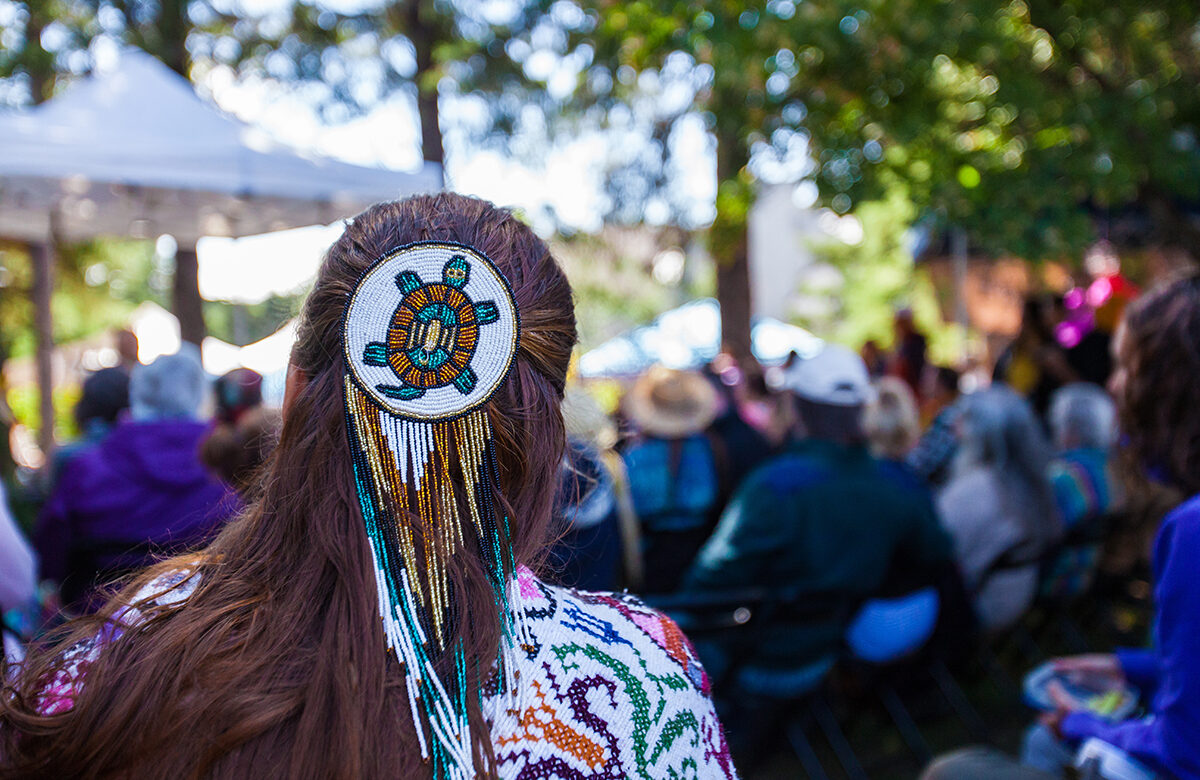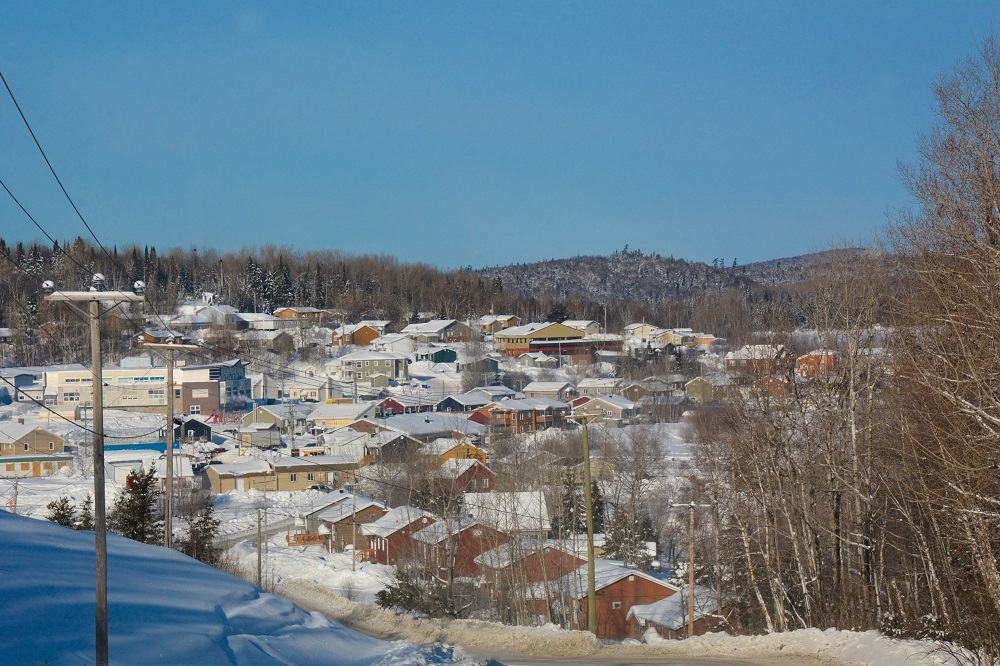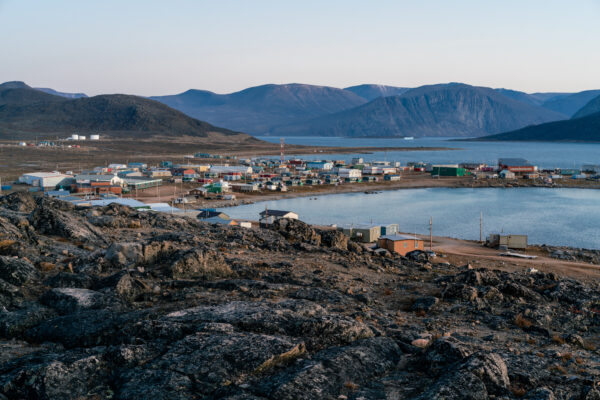About
The INRS-UQAT Joint Research Unit (JRU) in Indigenous Studies stands at the crossroads of scientific and Indigenous knowledge. Through innovative action, it aims to transform the relational dynamics and modes of interaction between the academic and Indigenous spheres in order to highlight the contributions of Indigenous peoples to humanity’s cultural heritage and the future of societies. The JRU is dedicated to democratizing knowledge and science. It is characterized by its broad vision of the driving role that reciprocity and sharing play in democratizing knowledge, as well as its structure based on openness to multiple forms of knowledge, its inclusive and mobilizing mission, and its outstanding partnerships in the field of social and community innovation.
Areas of expertise
By creating an intellectual, inter-institutional, and multidisciplinary space where Indigenous voices and knowledge can be expressed and heard, the INRS-UQAT Joint Research Unit in Indigenous Studies focuses on the contribution of Indigenous people to education, university research, and science. It also promotes interactive, ethical, and socially relevant research practices with First Nations and Inuit actors, as well as with Indigenous authorities working in Quebec and its various regions. By supporting their initiatives for decolonization; social reconstruction; and cultural, identity, and political affirmation, the INRS-UQAT JRU builds bridges between advanced training; scientific production; and social, territorial, and environmental challenges in relation to the realities and issues that mark Indigenous experiences.
Goal
The aim of this JRU is to further strengthen Abitibi-Témiscamingue as a centre of excellence in research on Indigenous issues in areas such as education, territory, self-determination, revitalization of Indigenous languages, modern urban life, and others by fostering a co-construction of knowledge that will benefit all of Quebec.
Members and researchers
Hugo Asselin (UQAT)
- Indigenous knowledge
- Small communities
- Northern development
- Forest ecology
- Territorial governance
Suzy Basile (UQAT)
- Indigenous women (pregnancy, childbirth, midwives, obstetric violence, forced sterilization)
- Indigenous peoples (First Nations and Inuit)
- Governance and territory
- Northern development
- Environmental issues and consultation
- Ethics of research with Indigenous peoples
- Cultural anthropology
Sébastien Brodeur-Girard (UQAT)
- Rights of Indigenous peoples
- Indigenous legal traditions
- Canadian constitutional law
- Governance
- Public policy and Indigenous peoples
- Histories of Indigenous peoples
- History of colonialism
Joanie Caron (UQAT)
- Mining in an Indigenous context
- Energy development in an Indigenous context
- Indigenous employability
- Natural resource management
- Sustainable/responsible development
- Environmental economics
- Human resources management
- Cultural diversity
- Organizational psychology
- Certification
- Finance
Mireille De La Sablonnière-Griffin (INRS)
- Children and youth services and Indigenous peoples
- Critical and transformative approach to statistics
- Indigenous self-determination and governance of child and family services
- Well-being and protection of Indigenous children and youth
- Disclosure of adverse experiences (sexual assault, maltreatment)
- Collaborative research
- Program assessment
- Early childhood services and Indigenous languages
Marie-Ève Drouin-Gagné (INRS)
- Decolonization of research, academic institutions, and urban spaces; Indigenous higher education, Indigenous pedagogies, and pedagogies through the land
- Urban Indigenous experiences, colonialist cities, and Indigenous cities
- Colonial and de-colonial processes in the Americas; de-colonial approaches
- Indigenous methodologies and epistemologies, participatory and collaborative methodologies, narrative cartographies
Benoit Éthier (UQAT)
- Indigenous studies
- Territorial issues
- Indigenous knowledge
- Customary rights
Francis Lévesque (UQAT)
- Social anthropology and ethnohistory
- Inuit, First Nations, and Métis
- Human-animal relations (dogs in Inuit communities)
- Inuit post-secondary education
- Impacts of mining development on northern communities
- Traditional Inuit knowledge (Inuit qaujimajatuqangit)
Ioana Radu (UQAT)
- Decoloniality
- Research epistemology, methodology, and ethics
- Ethnography and oral history
- Wellness and healing
- Indigenous health and cultural security
- Territorial governance
- Food security and sovereignty
Nancy Wiscutie-Crépeau (INRS)
- Decolonization of research;
- Indigenous knowledge and languages;
- Literacies;
- Indigenous education;
- Ethics of research with Indigenous peoples.
Affiliated members
- Stéphane Guimont Marceau, Magalie Quintal-Marineau, and Carole Lévesque of INRS.
Infrastructure and technology
The INRS-UQAT joint research unit has a space in UQAT’s Pavillon des Premiers-Peuples in Ka Pikitapikak (Val-d’Or) to carry out its research and training activities.
It has two laboratories: the Participatory Mapping Laboratory and the Research Laboratory on Indigenous Women’s issues – Mikwatisiw.
The joint research unit in brief
Event
In the media
The future of research with Indigenous peoples: Co-constructing a common vision at the INRS-UQAT Joint Research Unit in Indigenous Studies
- Date: November 21, 2024, from 9 a.m. to 5 p.m. and November 22, 2024, from 9 a.m. to 1:30 p.m.
- Registration: Registration form
- Registration deadline: November 1
- Location
Université du Québec en Abitibi-Témiscamingue (UQAT)
Pavillon des Premiers Peuples
Multi-purpose room (SUM)
663 1re Avenue
Val-d’Or, QC J9P 1Y3
September 27, 2024 | INRS
Marie-Ève Drouin-Gagné: Decolonizing Research and Academic Institutions
January 18, 2024 | INRS
Nancy Wiscutie-Crépeau: Raising Awareness About Reconciliation Issues in Education
September 23, 2021 | INRS
Research on Major Societal Issues: Indigenous Education and Health
March 22, 2021 | Radio-Canada
L’UQAT abritera une nouvelle unité de recherche en études autochtones (UQAT to Host New Indigenous Studies Research Unit; article in French only)
March 22, 2021 | UQAT
L’INRS et l’UQAT lancent une unité mixte de recherche en études autochtones (INRS and UQAT Launch Joint Research Unit in Indigenous Studies; press release in French only)
March 22, 2021 | INRS
L’INRS lance cinq unités mixtes de recherche en partenariat avec cinq universités sur des thématiques porteuses pour le Québec (INRS Launches Five Joint Research Units in Partnership with Five Universities on Promising Themes for Quebec; press release in French only)
Contact
Write to us at:






